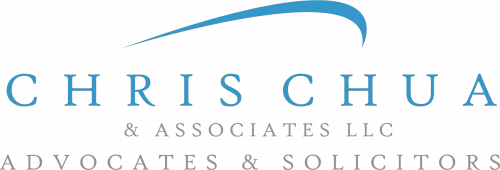Plan Your Retirement With Confidence
Find The Retirement Exit Strategy That Suits You Best
Are you ready to retire? Have you planned for your retirement exit strategy?
Many business owners don’t have a plan for what will happen when they retire and exit their businesses.
This can lead to difficulties in the transition and cause the business to fail.
Retirement exit planning is an integral part of any successful business.
This is why Business Succession Planning is so important.
A successful retirement exit strategy begins with developing a succession plan.
Several options are available for retirement exit strategies.
The best choice for you will depend on your business’s specific situation and personal goals.
Here are the 4 most common Business Succession Plans.
1. Selling Your Business To A Co-Owner
- If you own your business together with your partners, then you should consider drafting a mutual agreement that sets out the terms and conditions for selling a deceased or disabled owner’s business interest.
- This can help avoid future disputes and ensure a smooth transition for the business.
- One key advantage of this plan is that it allows the co-owner to buy out the shares of the deceased or disabled owner without delay.
- However, the critical drawback of this plan is that the co-owner requires much cash on hand since he would be prepared to buy out your shares theoretically at any time.
- A buy-sell agreement structure is a great way to overcome a co-owned business’s key drawback since the funding mechanism for the buy-sell agreement structure is usually done by purchasing an insurance policy.
2. Passing Your Business To Your Heir
When choosing an heir to take over your business, there are a few things you’ll want to keep in mind.
- First, is your heir ready and willing to take on the responsibility?
- Second, is your heir capable of running the business?
- Third, is your heir the right person for the job, both from a skill and character standpoint?
If you can answer yes to all of these questions, passing your business on to your heir is likely the best course of action for you and your family.
When making business decisions within a family, keeping emotions in check is essential.
Unfortunately, this is easier said than done, especially after an untimely death or disability.
Studies show that second-generation businesses rarely survive the transition, as they’re often sold by the inheriting family member or fail outright.
3. Selling Your Business To A Key Employee
- A key employee is a good option for a business succession plan since the employee is generally more reliable than an outside buyer and is more committed to continuing the business’s success.
- In a perfect world, the owner of a company would have a clear succession plan that seamlessly transfers ownership to the most qualified and deserving employee.
- But in the real world, many business owners don’t have plans.
- Money is often the biggest hurdle when it comes to key employee succession.
- Most employees aren’t financially able to buy the business they work for.
- One solution to this problem is an employee stock ownership plan (ESOP).
- An ESOP is a retirement plan allowing employees to own a piece of the business they work for. The company contributes to the ESOP, which purchases the company’s shares.
- Employees can then withdraw or cash the shares when they leave the company.
4. Selling Your Business To An Outside Party
- You may have to sell your business to an outside party when there isnt’t an obvious successor.
- Getting an updated valuation of your business would be best to ensure you get the best price.
- When it is time to sell your business, you want to ensure everything goes as smoothly as possible.
- But, unfortunately, you can’t predict precisely what the sales process will have in store.
- For example, your business may not be as valuable as you have anticipated, there may be a lack of credible buyers, or your business may not be able to sell at all.
- Therefore, weighing essential to weigh your options and considering the potential drawbacks before selling your business is essential.
No one ever plans to fail, but failure to plan leads to most business failures.
No one knows when their time will come, but having a good succession plan in place can ensure a smooth transition of your business when the time does come.
A succession plan can help transfer ownership of the company to another individual, maintain your lifestyle in retirement, provide for your heirs financially, and prepare the business to handle unexpected events.
If you don’t have a succession plan, it’s essential to start developing one now to ensure a smooth transition for you and your business.




